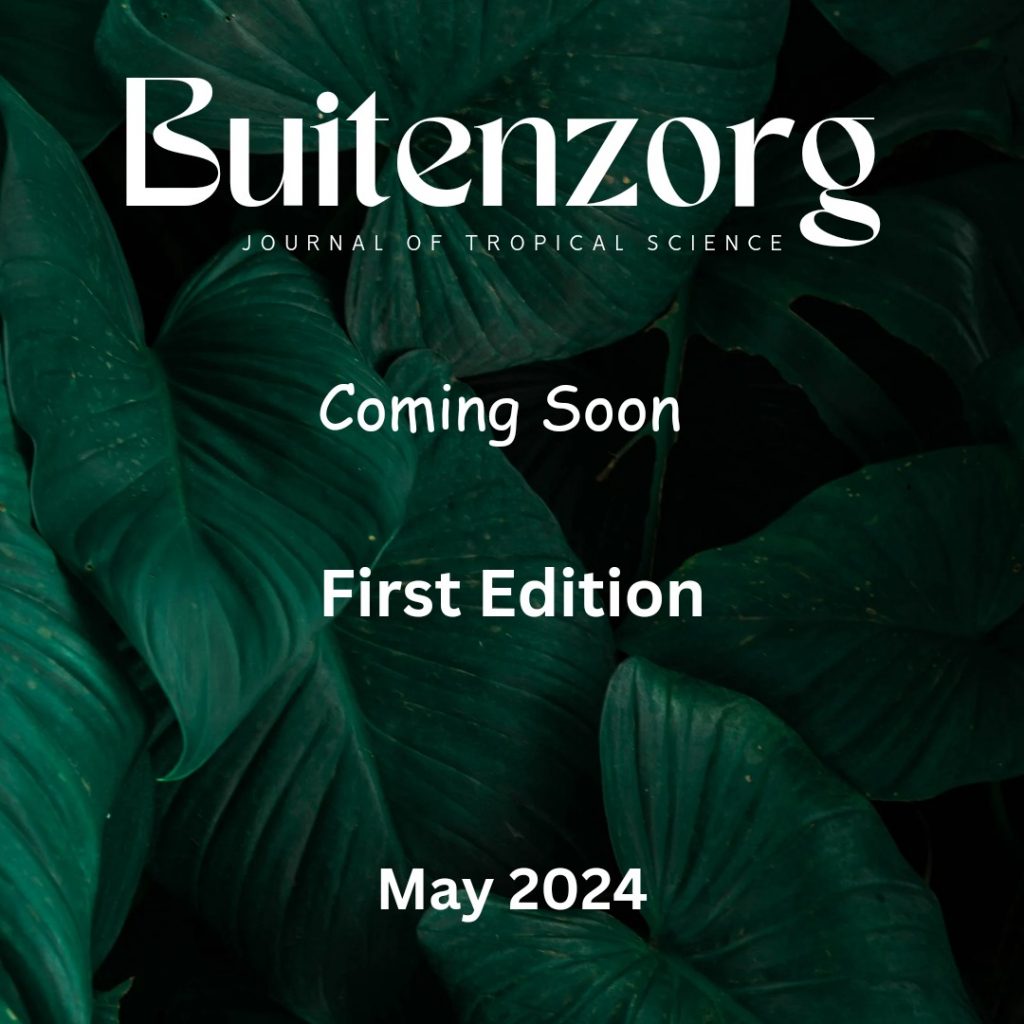We are thrilled to announce the launch of Buitenzorg: Journal of Tropical Science! Our peer-reviewed journal offers a platform for researchers and scholars to publish their original research in all fields of tropical science, in both Indonesian and English. With a scope covering a broad range of topics, including tropical biodiversity, agriculture, biology, ecology, environmental science, forestry, climate, and health sciences, our goal is to contribute to the advancement of knowledge and the sustainable development of tropical regions around the world.
At Buitenzorg, we are committed to facilitating the dissemination of high-quality research from scholars, scientists, and researchers from all over the world. Our rigorous peer-review process ensures that all articles published in our journal meet high standards of quality and scientific integrity.
Starting from May 2024, Buitenzorg will be published twice a year, in March and September, by the Innovation Centre for Tropical Sciences Foundation. We invite you to submit your research and be a part of the vibrant scientific community at Buitenzorg: Journal of Tropical Science.
Link for Buitenzorg: Journal of Tropical Science
About Buitenzorg
Buitenzorg is the Dutch name for Bogor, a city located in West Java, Indonesia. During the colonial period, Buitenzorg was the capital of the Dutch East Indies, and a center for agriculture, horticulture, and forestry research. The area was home to several important research institutions, including the Buitenzorg Botanical Gardens, the Forestry Research Institute, and the Veterinary School. The research conducted in Buitenzorg played an important role in advancing scientific knowledge in various fields. For example, the Buitenzorg Botanical Gardens, established in 1817, became one of the world’s leading centers for tropical plant research and conservation. The gardens played a key role in the introduction of rubber, cinchona, and tea plants to Indonesia, which became important crops for the country’s economy. The Forestry Research Institute also conducted important research on sustainable forestry practices and helped establish the concept of a national park in Indonesia. Overall, Buitenzorg was an important center for scientific research during the colonial period, and its contributions to science continue to be recognized and studied today.
Today, Buitenzorg, or Bogor, is a thriving city of over 1 million people, located approximately 60 km south of Jakarta. It remains an important center for agriculture and horticulture, with the surrounding region being known for its tea plantations and rice fields. The Buitenzorg Botanical Gardens, now known as the Bogor Botanical Gardens, are still in operation and are a popular tourist attraction, showcasing a vast collection of plant species from Indonesia and around the world. The gardens are also still involved in important research on plant conservation and biodiversity.
In addition to the botanical gardens, Bogor is home to several other important research institutions, including the National Research and Innovation Agency and the IPB University, which continues the tradition of agricultural research and education established in Buitenzorg during the colonial period. The city is also known for its high rainfall and cooler temperatures, which make it a popular destination for tourists and residents seeking respite from the heat and congestion of Jakarta.
While the colonial period and the legacy of Buitenzorg are often viewed with mixed feelings in Indonesia, there is no denying the important contributions that the city and its research institutions made to advancing scientific knowledge in fields such as agriculture, forestry, and plant biology.

